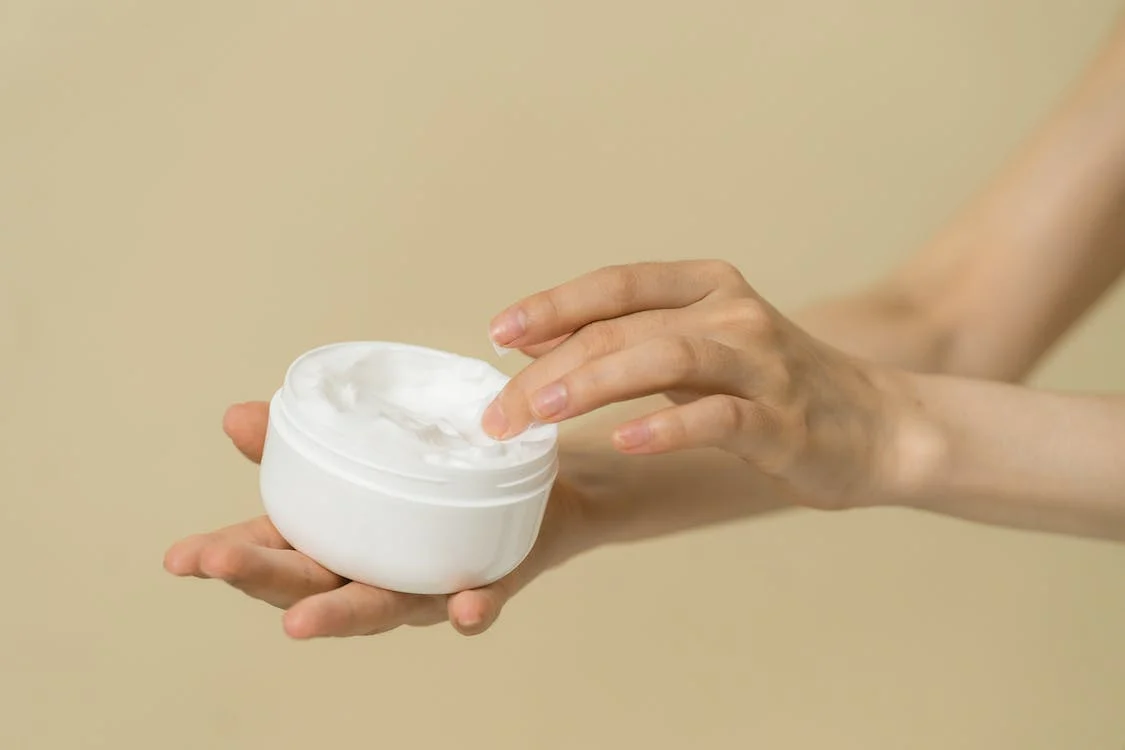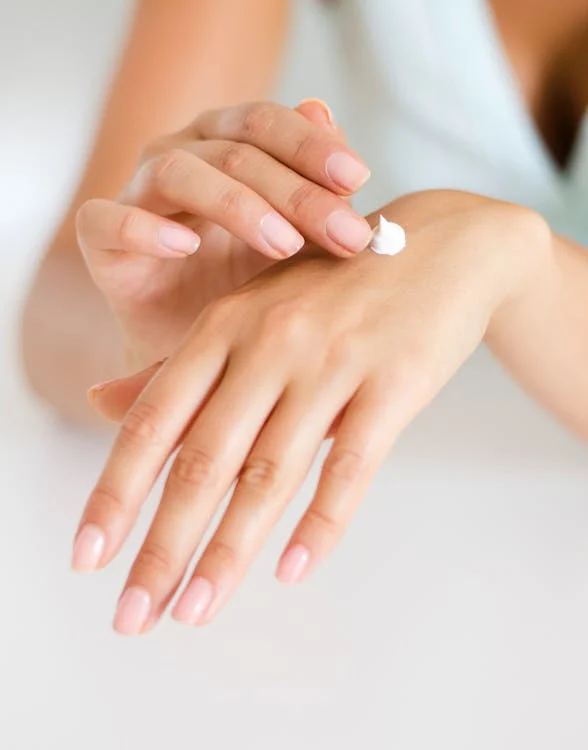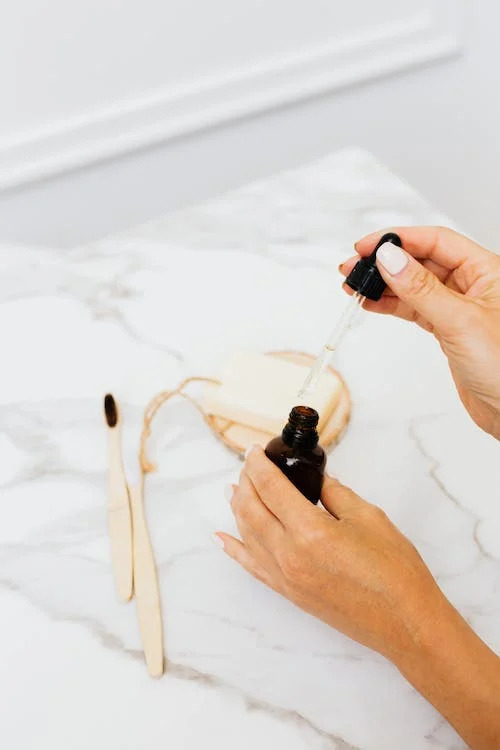Skin moisturizers are a staple in the beauty industry. They help restore the skin’s barrier after it has been damaged, making the skin more hydrated and protecting it from further loss of moisture.
Moisturizers are an essential component of any and all skincare routines; not just those with dry skin.
What Is An Occlusive Moisturizer?
Depending on their qualities, moisturizers may be classified as either humectants, emollients, or occlusives, and perform various purposes such as minimizing water loss through the skin, providing water to the skin, and decreasing apparent flakes.
The majority of products on the market include all three categories in varying proportions. One category of moisturizer may be better for certain skin types and skin features than the others.
Recent years have seen great scientific advancements in the production of moisturizers thanks to a better knowledge of the skin barrier’s structure and function. In order to accomplish specific results, modern moisturizers frequently combine ingredients with distinct mechanisms of action. [1]
If you have parched, damaged, or severely dehydrated skin, an occlusive moisturizer is likely to be your best option.
Occlusives are a common kind of ingredients in skincare products because of their ability to form a protective barrier on the skin and keep moisture in. Those prone to dry skin may benefit from this since it helps to keep moisture from the skin. Occlusives may be found in both skincare and cosmetic products, and are often combined with other ingredients like humectants and emollients.
Occlusive moisturizers establish a barrier over the skin, preventing water from evaporating and decreasing transepidermal water loss (TEWL). This barrier enables the deeper epidermis and dermis layers to replenish the stratum corneum’s water content. [1]
Because they create a barrier on the skin’s surface, occlusive ingredients are ideal for individuals with extremely dry skin and conditions such as dermatitis and psoriasis. Applying an occlusive moisturizer right after showering may be an efficient strategy to keep more water in the skin.
What Role Do Occlusives Play In Products?
In order to keep the skin moisturized, occlusives are often used together with humectants, which are ingredients that attract moisture into the skin. All excellent moisturizers are designed with this in mind, and often include both occlusives and humectants.
Since occlusive agents are often classified as oils, products formulated for drier skin types typically contain more occlusive agents than those formulated for oilier skin types. Transepidermal Water Loss (TEWL) refers to the process through which your skin loses moisture to the surroundings. Products that promise to prevent TEWL or have extraordinary 48-hour moisture protection are common – this is mainly due to the occlusives utilized in the composition.
What Are Some Common Occlusives In Skincare?
Typical occlusive substances include petrolatum, silicones, lubricants, and the majority of oils and butters. Unlike humectants and emollients, which are also used to keep skin moist, the best occlusives are not easy to replace with natural or plant-based ingredients. Because occlusives don’t have much water in them, they are less likely to hold bacteria and last longer.
The most common occlusives used in skincare products are:
1. Petrolatum
Since its introduction in 1872, petrolatum (or petroleum jelly) has been considered one of the most effective moisturizing substances.
Petrolatum, sometimes known as the “gold standard” of occlusive substances, forms a physical barrier on the skin’s surface that traps moisture and prevents transepidermal water loss (TEWL). This popular ingredient is typically found in lotions and creams designed to alleviate dry, flaky, or irritated skin, and it has been authorized by the FDA for this purpose. It’s included in many baby diaper rash treatments and other therapeutic ointments.
For really dry skin, nothing beats petrolatum as a moisturizer. Products containing at least 30% petrolatum may be used to temporarily protect and soothe chafed, chapped or cracked skin, as well as to shield the skin from the dehydrating effects of wind and cold.
2. Beeswax
Beeswax is a naturally occurring substance secreted by worker bees that has many modern applications.
It may act as an occlusive, contributing to the formation of a semi-occlusive skin barrier that reduces transepidermal water loss; a humectant, trapping in moisture; or an emollient, soothing the skin. All of these functions are important in the field of skincare. It has been shown that the use of this natural chemical may help ease symptoms linked with common skin problems such as dermatitis, psoriasis, and an excess of normal skin flora.
3. Silicones
Silicones are extensively used in cosmetics and are renowned for their occlusive qualities. They also provide the skin’s surface gloss and slickness. There are several kinds of silicones, and not all of them have the same qualities, from being soluble in water and oil to being completely insoluble in both. Dimethicone and other hydrophobic (water-repellent) silicones have been shown to affect skin moisture levels and improve the skin’s texture. Due to its ability to create a waterproof barrier that shields the skin, dimethicone has also been used in the treatment of wounds.
4. Shea Butter
Shea butter is a lipid derived from the shea tree’s nuts. Antioxidants and fatty acids are abundant in this creamy, thick butter, which helps to moisturize and protect skin.
Because of its solid state, shea butter has more occlusive characteristics than oils and serves as an occlusive/emollient component. Shea butter is one of the few natural, non-comedogenic ingredients with significant occlusivity. It has hydrating and anti-inflammatory effects.
5. Squalane
Squalane, an occlusive moisturizer, is best applied on wet skin since it locks in moisture. Because it’s a natural byproduct of the human body, this oil works well on all skin types. Squalane’s molecular structure helps it to permeate the skin deeply, leaving it feeling smoother and healthier over time.
Squalane’s similarity to the lipids our skin naturally generates makes it an ideal barrier-forming ingredient.
6. Castor Oil
Castor oil is known as an occlusive oil because it physically prevents water loss and is abundant in ricinoleic acid, an antioxidant that prevents free radical injury to the skin.
Who Is Allowed To Use Occlusive Moisturizers?
Identifying your skin’s demands is the first step in selecting the best moisturizer.
Occlusives are ideal for persons with dry, irritated skin or those dealing with problems like eczema or a weakened barrier, while humectants are best for oily, acne-prone, and mature skin types.
Occlusives may help cure dry, itchy, or flaky skin. It is of the utmost importance that you choose an occlusive both comfortable and also works well with your skin.
What Benefits Do Occlusives Have?
Occlusives are oils that form a barrier on the skin or hair to retain moisture and protect against environmental harm. As an emollient or occlusive, they are often found in skincare products, and as a haircare ingredient, they serve to protect the hair shaft.
There are numerous advantages to incorporating an occlusive into your hygiene routine. Occlusives can aid in:
- retaining moisture
- protecting the skin from environmental harm
- preventing water loss
- maintain the skin’s hydration
- enhance the skin
- reduce the appearance of wrinkles and fine lines
An occlusive may help lock in moisture and stop water loss if your skin is dry. It can also help reduce oiliness by blocking pores and may shield your skin from the elements, making it ideal for those with sensitive skin. Additionally, occlusive helps keep your skin moisturized and supple if you have normal or mixed skin.
Wrapping Up
An occlusive is the perfect option if you want a moisturizer that will last all day, will help prevent moisture loss, and will shield your skin from the environment.
If you have dry, damaged, or extremely dehydrated skin, an occlusive moisturizer is likely to perform best for you.
Reference
- A Harwood, A Nassereddin, K Krishnamurthy – 2019 -Moisturizers- europepmc.org



